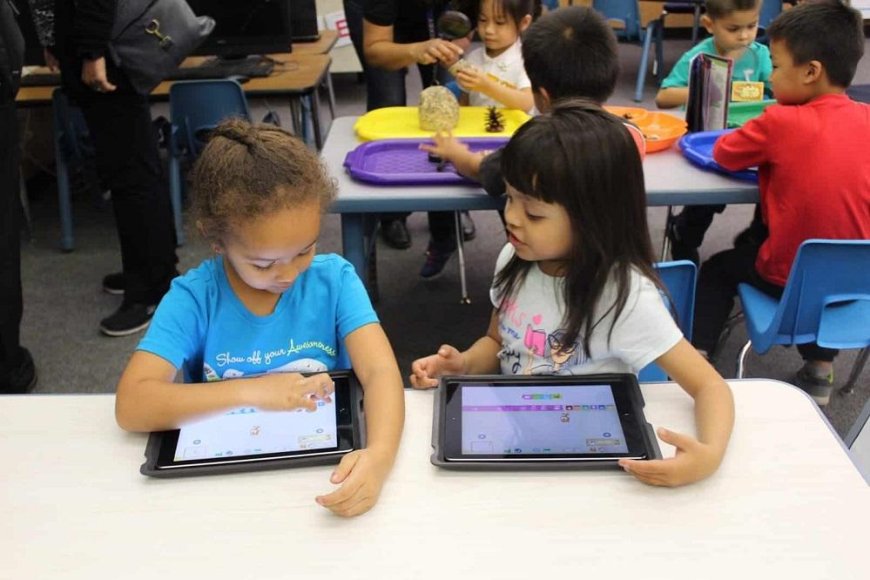Why is it worth learning basic competences in childhood?
child so that they can discover how to cope with any situation as they reach adulthood? worth learning basic competences in childhood.

Do you know what are the core competencies every child should learn as a child so that they can discover how to cope with any situation as they reach adulthood? worth learning basic competences in childhood.
There is one main reason why basic childhood competencies are extremely important. They facilitate the development of children at every stage they are at, helping them to face the future and adult life.
By mastering their core competencies, children acquire the necessary tools they will need to face the various challenges that life will pose as they grow.
Basic competences: learn 8 basic competences
Currently, the school curriculum defines 8 core competences. To a greater or lesser extent, all young people in school must pursue them throughout the entire stage of their education. These are:
- Math skills.
- Competences in the field of linguistic communication.
- Personal initiative and autonomy.
- Competence in the field of interaction and knowledge of the physical world.
- Social competence.
- Information processing and digital technologies.
- Artistic and cultural skills.
- Competences in the field of education.
When children acquire these core competences to a greater or lesser degree according to their natural abilities and talents, they will be able to respond to basic aspects of today's society in the future.
Therefore, the idea is for children to learn how to do their daily activities independently. Once they acquire these core competencies, they become more integrated into society. At the same time, they will master the principles of learning that relate to the different situations and contexts that arise on a daily basis.
Basic competences
Now let's take a look at what these competencies consist of. All educational centers must deal with these issues to ensure that their students acquire them and become familiar with them.
Competences in the field of linguistic communication.
First, acquiring linguistic competences helps children learn to use the language correctly on a written and verbal level. In addition, they discover how to interpret utterances, how to understand them and how to differentiate them depending on the communicative context in which they occur.
Must Read: Sleepy mornings? See how to wake your baby
In addition, they learn to make critical judgments, make decisions, and generate ideas.
It is also helpful for children to learn foreign languages ‹‹so that they can communicate in an increasingly globalized world. In this way, they learn to establish appropriate social relationships and cope better in different social contexts.
Math skills.
In this case, children learn to use numbers, both in everyday life and with basic operations. They learn the mathematical reasoning necessary to interpret information, solve problems, and expand their knowledge.
At the same time, children gain knowledge that will be useful in their everyday family and professional life.
Competence in the field of interaction and knowledge of the physical world.
This skill leads children to learn about the mechanisms of autonomous development in the world. He teaches them different areas, from consumption to health, thanks to which they know how to analyze, interpret and draw accurate conclusions in various real-world contexts.
Information processing and digital technologies.
In a globalized and connected world like ours, this skill is essential for children to learn how to acquire and process information. In this way, they can transform it into knowledge and access it through a variety of media
More core competencies
Social competence.
This skill includes the ability to get to know yourself and learn to appreciate yourself as you deserve. Consequently, children learn to communicate their own ideas, practice active listening, and accept and analyze different points of view.
Moreover, it shows them how to civically value and defend their own interests in a group context.
Artistic and cultural skills.
It refers to a child's ability to understand, know, appreciate and critically appreciate all artistic expressions. To this end, they learn about various means of expression.
Competences in the field of education.
It is just learning to live. In other words, it refers to children discovering that they will always learn and that they will do so autonomously and efficiently after passing the school stage. With awareness and control of your skills, using learning techniques and adequate motivation.
Personal initiative and autonomy.
This shows the child the need for persistence, creativity and responsibility. It also teaches the importance of self-control and the ability to self-criticize without losing self-esteem. In this way, they will improve their core competencies and will have a strategic vision of planning opportunities and challenges.
To sum up¦
In conclusion, it goes without saying that it is very important that children acquire basic competences during childhood in order to be able to receive an education appropriate to their development and future.
